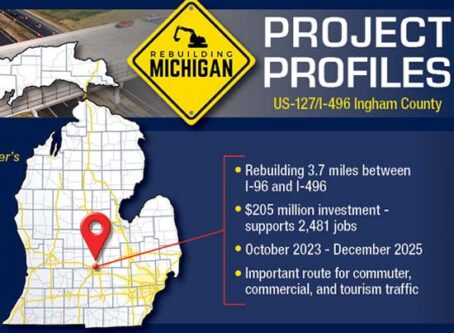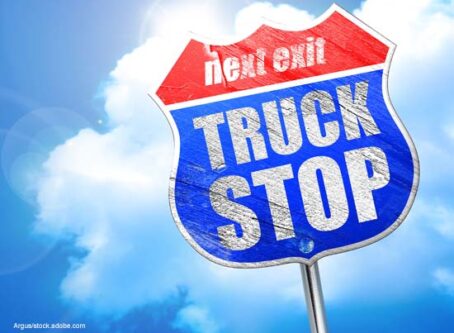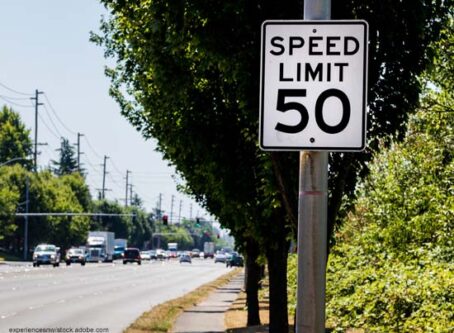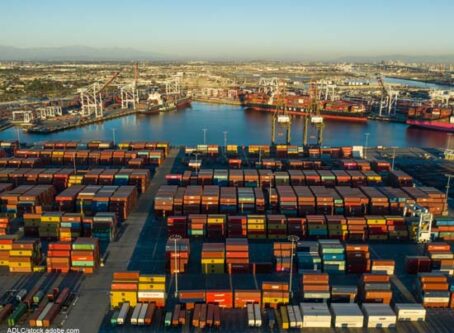Five Cabinet members give little insight during Senate infrastructure hearing
Yet another congressional hearing over the proposed infrastructure plan took place on Wednesday, March 14. This time, the Senate Committee on Commerce, Science and Transportation took witness testimony from five Cabinet members, including Transportation Secretary Elaine Chao. Witnesses did not offer much new information but did offer some insight into the recent steel and aluminum tariffs installed by President Donald Trump.
Funding
As with previous hearings, state and local funding was a popular topic during Wednesday’s Senate hearing. Several members were questioning the lack of direct federal funds proposed in the plan.
Although the White House’s plan calls for $200 billion in federal seed money that will spur $1.5 trillion in overall infrastructure investment, there is still uncertainty where exactly the remaining $1.3 trillion will come from. Furthermore, lawmakers were questioning the move to shift the burden of financing to the state and local level.
Ranking Member Bill Nelson addressed funding issues in his opening statement.
“The president’s plan calls for $200 billion but has no clear way to pay for it,” Nelson said. “At the same time, the administration’s budget cuts critical infrastructure programs. We can’t cut our way to prosperity. Second, should we maintain the federal government’s role as a strong partner to our states and communities or add more toll roads and fare hikes? I think the answer should be clear. We can’t toll our way out of this problem.”
During the Q&A portion of the hearing, Nelson said that in order for states and localities to pay for their share of costs, which is 80 percent compared to the fed’s 20 percent, tolls and taxes must increase. Chao responded by suggesting tolls and taxes “are not the only options for financing infrastructure.” She then pointed out that asset recycling (selling of publicly owned property), bonds, public markets and private markets are all possible funding mechanisms.
Abandoning her go-to phrase of “all options are on the table,” Chao referred to the Department’s views on funding methodologies as “agnostic.”
Sen. Tammy Duckworth, D-Ill., was more forthcoming in her criticism. Duckworth said that rather than supply a lengthy proposal, President Trump released a loose outline, leaving people to wonder if this is a serious infrastructure campaign by the White House. The Illinois senator then asked Chao about some potential revenues being considered.
Chao responded by pointing out that infrastructure was always going to come third behind healthcare and tax reform and that loose guidelines were issued to show open, bipartisan dialogue to create the bill.
“Good news is everything is on the table, and we look forward to working with the Congress on these difficult issues,” Chao said.
“I don’t think that’s quite an answer of what I’m asking, which is ‘What have you considered?’” Duckworth responded.
Sen. John Tester, D-Mont., was also skeptical of the 80/20 funding plan burden on the states, asking how states are supposed to accomplish that when they are struggling to fund the 20 percent they currently pay. Secretary of Commerce Wilbur Ross suggested selling public assets. Much like Duckworth, Tester was not satisfied with the answers.
“This infrastructure plan makes for a great press release, but I’m telling you the state of Montana right now is cutting programs because they don’t have money,” Tester said. “They’re cutting essential programs in our state.”
When being interrogated by Sen. Richard Blumenthal, D-Conn., on funding for the Gateway Program that will expand the rail line between Newark and New York City, Chao finally had enough.
“A campaign is being waged in a public arena to bully the Department to pressure the federal government to fund these projects,” Chao shot back.
Secretary of Energy Rick Perry also offered committee members a dose of reality.
“When you’re going to build transportation infrastructure, you got three choices: you got tax roads, you got toll roads or you believe in the asphalt fairy,” Perry said.
Tariffs and NAFTA
A few committee members brought up fairly new topics indirectly related to the infrastructure bill: the North American Free Trade Agreement and tariffs on aluminum and steel.
President Trump used national security as justification to impose the tariffs. When asked by Sen. Tom Udall, D-N.M., whether or not the steel and aluminum industry is a matter of national security, Secretary Ross referred to Defense Secretary James Mattis’ memo. Mattis indicated that the health of the steel and aluminum industry is a matter of national security.
However, in that same memo, Mattis pointed out that the U.S. military’s requirements for steel and aluminum represent only about 3 percent of U.S. production. Mattis concluded that the Department of Defense does not believe findings in reports “impact the ability of DoD programs to acquire the steel or aluminum necessary to meet national defense requirements.”
Mattis went on to say that tariffs can have a negative impact on key allies. Therefore, the Department of Defense prefers “targeted tariffs” rather than a global quota or global tariff.
Sen. Cory Gardner, R-Colo., pointed out that no studies have been conducted regarding the impact of tariffs on transportation, agriculture, jobs or energy, indicating that such a tariff will have negative consequences on those sectors. Secretary Ross told Gardner that “lively discussions” on effects to the economy were had when exploring the idea.
Sen. Udall also warned the Cabinet members of the negative effect a withdrawal from NAFTA will have on the economy, including transportation. Secretary Ross said he was keenly aware of the potential impact. Despite concerns, Ross said a unilateral withdrawal from NAFTA is still not off the table.









